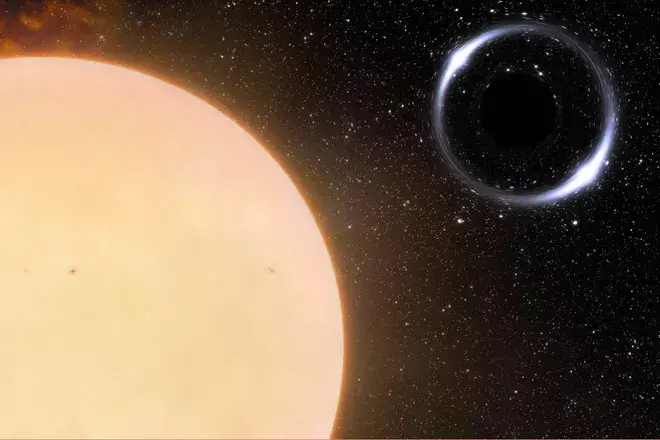O Black Hole closest to planet Earth was discovered last November 4 by astronomers in Hawaii, and was named Gaia BH1. While this sounds worrying, this event is not active! Follow this article and understand more details of this news!
Read more: 'Cosmic burp' from a black hole: What caused the phenomenon?
see more
Japanese company imposes time restriction and reaps benefits
Alert: THIS poisonous plant landed a young man in the hospital
Closest black hole to Earth: Gaia BH1
Hawaiian astronomers operating the Gemini North telescope recently discovered this new event that is even closer to Earth, called Gaia BH1. The new black hole is 10 times heavier than our Sun, and is located in the constellation Ophiuchus.
Although they are known as a force that sucks everything into itself, this is not the case with Gaia BH1. After all, this phenomenon poses no risk to Earth, as it is dormant and at a distance of 1600 light years from us.

There are several black holes in the Universe, but these are not easy to identify. Scientists report that discovering Gaia BH1 was a difficult task, and that they were only sure after evaluating its gravitational influence on a nearby star, which looks like our Sun.
While other black holes have been found in the galaxy, none are as close to Earth as Gaia BH1. In addition, scientists do not know why the star close to this phenomenon remains intact, being the first time this phenomenon happens.
These phenomena appear as large stars at the end of their lives, which collapse and form a black hole, with a very strong gravitational pull. Thus, they are popularly known as an abyss, responsible for destroying everything that is close.
However, this is not what happened to Gaia BH1, as the black hole's "companion" star remains mysteriously orbiting. Finally, astronomers intend to understand how this system came about and try to determine if there are other of these objects sleeping in the Milky Way.
